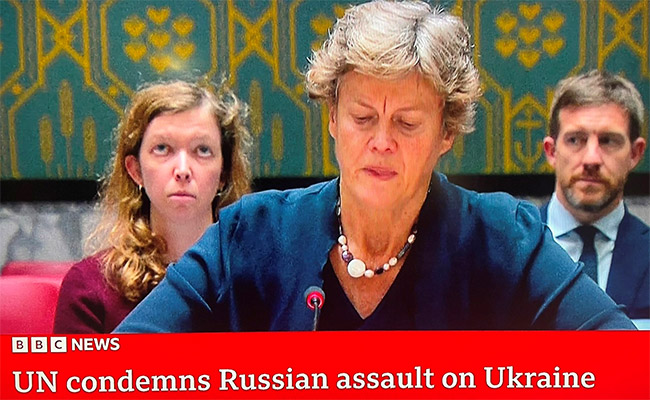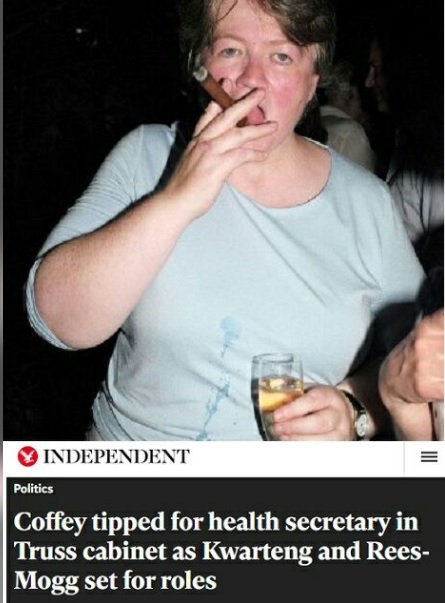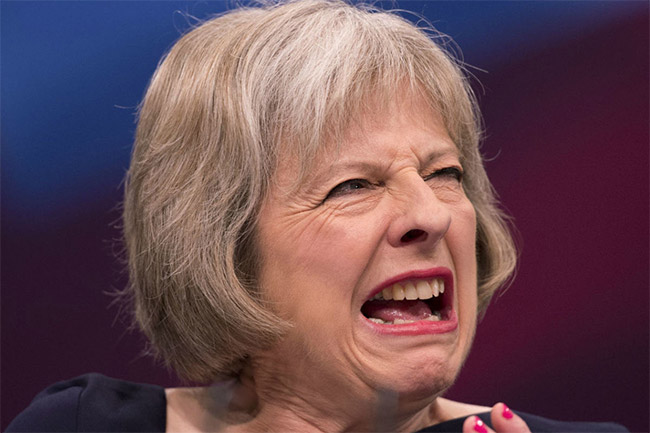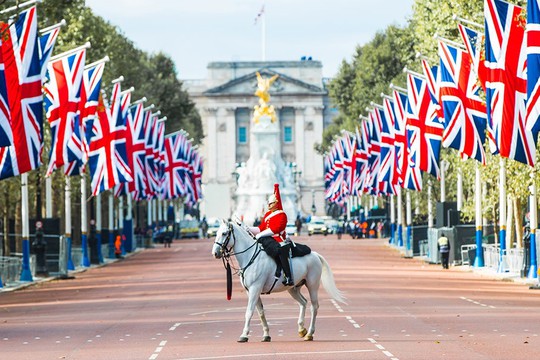A very interesting article that examines the reasons for the crisis of the English political elite. a veteran of public service assesses what is happening. This assessment is very sad. British politics is withering because the quality of officials has plummeted. And this is a historical process. Munira Mirza, the author of the article, was the director of the Number 10 Policy Unit between 2019–2022, where she chiefly advised the Prime Minister on UK domestic policy and before that served as deputy mayor for Education and Culture in London.
There is a paradox in public life in Britain today. The population is more highly educated than ever before, a larger proportion of young people attend university or further education today than in the past, the UK is among the highest-ranking countries for Nobel prize winners, and its cities are magnets for global talent in sectors such as finance, technology, arts, medicine and law.
Yet, despite nurturing an extraordinarily high stock of human capital over the last 50 years, Britain’s political class feels more inadequate and ineffective than ever before. Logically, a rise in the general intelligence of the population should result in a larger, more diverse and more impressive talent pool for the political elite. The reverse seems to be the case in the UK. Has there ever been a time when the standard of the political class has felt so out of line with improvements in wider society?
I write this essay as someone who has worked within the British political system and therefore has more sympathy than most for the people in it. For nearly three years I was the director of the prime minister’s Policy Unit in 10 Downing Street and had the remarkable privilege of observing the inner workings of Whitehall. I watched ministers, MPs, senior civil servants and political advisors grapple with the turbulence of the EU referendum result, parliamentary deadlock, a general election and the Covid-19 pandemic. It was an unparalleled education in the way government operates and the nature of those who run it.
Yet, for all the good people I met, I came away convinced that our political system does not prepare leaders as well as it should, nor does it attract enough of the talent needed to deal with the challenges the UK faces.
There is a systemic problem in how we as a country identify and train MPs, Cabinet ministers, senior civil servants and advisors. Many of the old pipelines of talent are losing their appeal, or no longer exist. And for those who do arrive in politics, they are unlikely to experience the sort of ‘apprenticeship’ journey their predecessors did. In the past, Cabinet ministers had built careers in other professions, then spent years acquiring knowledge and experience on the back benches and as junior ministers.
 UK delegation to the UN Security Council.
UK delegation to the UN Security Council.
Civil service mandarins were examined at entry – and frequently assessed – on their objective knowledge, not just their subjective qualities. All senior officials underwent rigorous training in thorough, structured courses at a national college. The political journey for many people running the country today is shorter, less demanding and more ad hoc.
The consequences of all this are that the quality of decision-making is often erratic, with government unable to think and act long term. Too often there is a lack of institutional memory and policy knowledge among legislators.
The quality of politicians (and public servants) is far from our only problem. Economic headwinds, global conflict, demographic change and other factors beyond individual control all play their part. But if politicians do not look like serious people, if they cannot develop credible answers or build support for their agenda, the result will be a declining faith in democracy.
According to the Office for National Statistics, public trust in national government has now fallen below 40 per cent.
The problem is not unique to Britain either. Henry Kissinger – who probably met more significant world leaders than anyone else in recent years – reflected that the rise of social media has reduced the attention span of politicians and voters.
Despite being more likely to have earned a degree than in the past, elites have lost access to the deep literacy that was a given for previous generations, and which is vital to understanding the situation of their country. The most impressive world leaders of the twentieth century, from Charles de Gaulle to Lee Kuan Yew, spent time learning about the global forces facing their countries, the diverse needs of their people and how to build a team that could pursue a vision.
Today, the type of education and sense of duty that shaped the post-war generation is no longer present to the same extent.
Why do we have this problem, and are there particular factors in the UK system that mean its political class is destined to fall short? There are structural reasons we can point to. First, what economists would call a classic ‘misallocation of capital’ problem: talented people are put off politics by the fact that it is poorly paid and increasingly low-status. The public dislike intensely the idea of paying politicians and civil servants more. A smart young person in their twenties would rather go into business or a profession where they can build high-status careers and gain esteem from their peers. If money is not a priority, they might be tempted into journalism or charity work. They are likely to live more comfortable lives and not endure the kind of hell-bent media scrutiny that is now a feature of political life.
With this talent drain, there is a doom-loop effect: the fewer good quality people become politicians, the lower status politics has and the less attractive it is to other good people.

In the past, successful societies gave much thought to the question of what might be called ‘elite formation’. Just as any family or business might do succession planning, different tribes, nations, city-states and empires have found ways to identify the people who will carry forward the legacy of one generation to the next.
As Adrian Wooldridge documents in his excellent 2021 book, The Aristocracy of Talent, different systems around the world throughout history have found ways of using meritocracy as a guiding principle, and creating institutions that would guide future leaders.
In the modern era, European nations, and latterly the US, created a range of diverse institutions – grammar schools, public schools, universities – to teach the practical skills, as well as the moral character, that would be needed to cultivate future civic leaders. It is a well-worn cliché in Britain that the Battle of Waterloo was won on the playing fields of Eton, while in the US, the early Puritans founded the Ivy League universities (including Harvard and Yale) to train ministers. These went on to become the pipeline for future political leaders – Harvard alone counts eight presidents among its alumni.

So what has happened to this idea of elite formation in liberal societies? Arguably, something subtle has changed in the culture of these institutions and within the British elite itself since the 1980s or 1990s. Modern institutions today emphasise their ethos of meritocracy (even though they continue to have a highly socially privileged and white intake), but Wooldridge argues they seem to have lost a vital characteristic of elite formation, which is the idea of ‘noblesse oblige’. Students are no longer trained to think of themselves as custodians of a nation who ought to ‘give back’ in return for their status, but as highly talented individuals who have earned their position through intellectual superiority and therefore deserve to pursue their own ambition first and foremost.
Another profound change is in the British political parties themselves, which have cut back on their own outreach and education. In the 1950s, almost one in ten people in Britain were members of political parties. It is hard to imagine now…
Both the Labour and Conservative parties had their own adult education colleges, which produced mass pamphlets and where thousands of party members and activists heard varied lectures on politics, economics and philosophy. They would have the opportunity to meet each other, as well as senior politicians. This vast social network has largely disappeared – there are now only around 500,000 members of political parties and the colleges have gone.
As a result, many people coming into elected politics today receive little education in public policy, economics or how government works. They arrive in Westminster expected to work their ideas out in isolation. There is no way for them to learn about the big challenges facing the country – from AI to geopolitics – except by their own volition.

The UK civil service shut down its prestigious national college at Sunningdale in 2010 as part of a wider cost-cutting exercise, and there have been complaints ever since that civil servants lack expertise. Taken in the round, these are extraordinary losses to the professional development of those running the country.
All the changes I have described in the UK have taken place almost without comment or concern in the last 40 or so years. We have become relaxed, even complacent, about the idea of elite formation.
The UK has not experienced a sense of existential crisis for many decades. In the 1990s, elites believed they were living through the End of History and the End of Boom and Bust. They had beaten the twin evils of communism and economic decline.
In a multipolar world, with a stagnant economy and the prospect of geopolitical conflict forcing us into ever tougher choices at home, we must think about leadership again with the kind of seriousness it deserves.
read more in our Telegram-channel https://t.me/The_International_Affairs

 11:14 13.07.2024 •
11:14 13.07.2024 •























